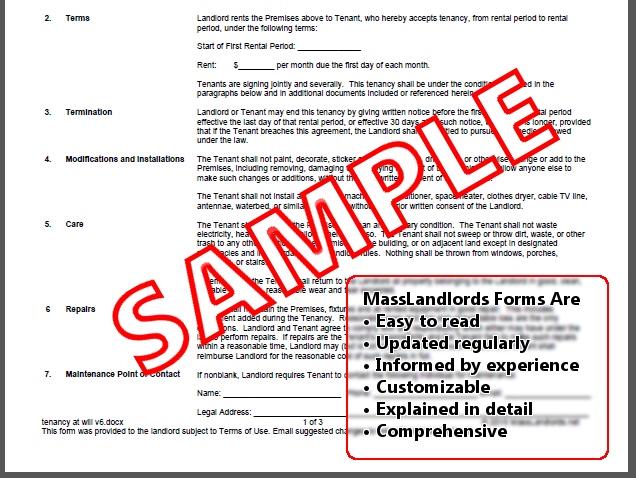Applicant Qualifier International Students
By Eric Weld, MassLandlords, Inc.
Renting to international students – of which there are tens of thousands in Massachusetts – often comes with its own set of challenges during the screening stage when documentation may be unverifiable or hard to interpret, U.S. references nonexistent, and background details difficult to corroborate.
International students can make for high-quality tenants, and ignoring that market sector may not be a wise business decision for landlords in this college-rich state. But student renters from foreign lands typically arrive in the United States with a different portfolio of credentials than U.S. citizens, and an effective screening process must take that into consideration.

More than 63,000 students from foreign countries come to Massachusetts every year—33,000 to the Boston area—many looking for rentals.
The COVID-19 pandemic and response is having and will continue to have a large impact on the international student rental market in Massachusetts. Still, for those who do travel to the U.S. for their education this year, and in subsequent years, these qualification principles pertain.
MassLandlords International Household Student Qualifier
To assist with specific issues that can accompany screening international students, MassLandlords has prepared an International Student Household Qualifier that will help steer landlords through the process.
This form recognizes that international students may not be in position to prove stable income or rental history, and that their credit background may be difficult to verify. It also concedes that references outside the U.S. can be hard to reach, may not speak a language you understand, and are more difficult to identify as legitimate.
Rather, the International Student Household qualifier works with documentation and verifiable assets that foreign nationals do have. Instead of past landlord references, this qualifier grades the quality of applicants’ cosigners in the United States. As opposed to bank statements or proof of employment, the form seeks verification of student loans from applicants’ schools and savings compiled in the U.S. by the applicant and cosigner.
Avoiding Discrimination Complaints
The overall goal of the International Student Household Qualifier is to avoid renting to bad tenants and all the headaches and high costs that come with that situation. By using the form’s numeric scoring system, landlords can more easily avoid confusion by negating subjective judgments.
The qualifier also helps landlords avoid any questions of applicants that may be innocently asked but could be interpreted as discriminatory and lead to MCAD complaints.
Under the Civil Rights Act of 1968, landlords may not consider national origin on rental applications, among other protected classes; and cannot apply different rental terms or conditions due to nationality.
Importantly, all applicants, whether U.S. citizens or foreign nationals, must be given the same rental application, and the same standards must be applied when considering them as renters.
MassLandlords qualifiers do not in any way prove an applicant’s legal status.
However, if a foreign national student applicant is able to pass the International Student Household Qualifier using school acceptance and/or scholarship letters (these are high-ranking criteria), it means they have obtained an F-1 visa qualifying them to be in the U.S. (Acceptance at an accredited U.S. college is required in order to be eligible for an F-1 visa.)
Scoring Points
Like its counterpart, the standard Applicant Qualifier already provided by MassLandlords, the International Student Household Qualifier applies a point system to applicants’ qualifications. For example, international student applicants receive 10 points if they are enrolled in a graduate student program, as opposed to 0 points for an undergrad program. Graduate students, whether foreign nationals or not, are usually more mature and tend to be more serious and stable students and typically translate into higher quality tenants. (Note that graduate business schools may provide one notable exception.)
Foreign student applicants receive 80 points (an automatic pass) if they apply with a cosigner that owns real estate in Massachusetts and passes the standard Applicant Qualifier. If a cosigner owns U.S. real estate outside of Mass. and passes the standard qualifier, the foreign national applicant gets 30 points. For a U.S. resident with no real estate ownership, 20 points.
And so on. The numeric goal is for an applicant to compile 80 points. Any score below that threshold is a failure to qualify. As always, landlords should work in good faith to help applicants increase their point total to a passing score rather than issue an outright rejection.
Also similar to the standard applicant qualifier, the international student qualifier includes a set of immediately disqualifying criteria. These criteria should be considered somewhat flexible, and landlords can customize them as needed; but you might want to use the defaults on the form until you have experience with international student renters.
According to the form default, an international student applicant or group of applicants is immediately disqualified in this process if they are found to falsify information on the application; if they cannot pay first, last and security deposit, as those apply, in cleared funds before moving in; or if they have not yet arrived in the United States and want to rent your apartment sight unseen. Other disqualifying criteria include omitting critical information on the application, owning a waterbed or aquarium, or if they intend to house more than the legal occupancy allowed in the rental.
Specific to foreign applicants: do a quick search of the Office of Foreign Assets Control (OFAC) sanctions list, a compendium of individuals and groups targeted by the U.S. Treasury. If your applicant’s name appears on the list with a score of 90 or higher, further investigation is needed to confirm if that is your applicant or a different person with the same name. If your applicant is listed on OFAC lists with a high score, it’s an automatic (and definitive) disqualification.

International students must receive acceptance documentation from an accredited U.S. college or university in order to obtain an F-1 visa qualifying them to be in the country.
High Quality Tenants
Many landlords find that renting to international students is a positive experience.
“I have had very good experiences with international students attending Harvard and MIT,” Karen Jarosiewicz, a Cambridge landlord, told MassLandlords. “I predominantly rent to graduate students and find them courteous, clean, quiet and on time with the rent. They provide documentation of what school they will be attending and their grants, etc. They usually stay through master’s and doctoral work.”
“I have a property near UMass-Lowell,” said Shari Traub, a landlord in Andover. “I rented to two international students, girls from South Korea. Fantastic tenants. We had a little language barrier but I communicated through the iTranslate app. They were awesome.”
International students’ matriculation at a United States school usually requires a higher degree of academic seriousness, so they often have strong incentive to remain in good standing with landlords and employers. Finding housing can be more difficult for international students so they may be more likely to commit to long-term tenancies. And because foreign national students typically do not have the same access to U.S. government financial college aid as American citizens, those who come here are sometimes supported with ample financial resources.
But as the disclaimer on the International Student Household Qualifier notes, “International student rentals are for landlords well practiced in traditional applicant qualifiers, familiar with their local college/university market, and ideally familiar with the nation from which their applicants are arriving.”
Patty Vairo, owner of V.F. Properties in Worcester, MA, which frequently rents to U.S. and international students at Worcester Polytechnic Institute, Clark University and other schools, acknowledges the value of familiarizing yourself with the cultures from which prospective tenants are arriving in the U.S.
“Recognizing that cultures can be vastly different for international students has been very helpful and has made for a very good tenant/property management relationship,” she noted.
Vairo also emphasizes the importance of experience working with students from home and abroad. She employs a property manager with more than 35 years experience in screening prospective tenants. “A combination of instincts and experience allow him to make excellent choices,” she said.
Higher Revenue Potential
Renting to international students also introduces the possibility of increasing revenue. You can rent a unit jointly and severally to multiple students who each have their own cosigners and student loans, who together can pay a higher rate than you might obtain from a single-income household. Students from foreign countries very often come to the U.S. individually and may be looking specifically to rent single bedrooms with access to common areas in the unit. Your rent might be 30% higher than market, but because the rent is split three or four ways, each resident will find that apartment their cheapest option.
For instance, if you can normally get a single-income household to pay $2,500 per month for your Cambridge three-bedroom, you could instead opt to rent out the unit to a makeshift household of three college students, each paying $1,000, netting an extra $500 per month. Compared to a Cambridge one-bedroom, which might be $1,800 per month, each renter saves $800 per month.
Be careful: this strategy assumes the households sign jointly and severally. You cannot rent by the room, with separate rental agreements and locks on the doors, unless you are licensed as a lodging house by your town or city. Each time a roommate wants to leave, you must screen the replacement roommate, terminate the old agreement, and then execute an entirely new rental agreement. The additional rent comes at an additional administrative cost.
Consider Cultural Differences
Charging top-of-market rates for international students may not always be the prudent practice.
Even if they demonstrate a means to afford life in an expensive American city, foreign nationals may not be prepared for added costs of urban life like the need to hire taxis, Ubers and Lyfts, and the higher prices they will have to pay for things like vacuum cleaners and cleaning products. Most landlords would rather charge a little less for rent if it allows their tenants to afford items for keeping the rental unit clean and in good shape! Or better yet, offer your tenants a controlled supply of approved cleaning products and tools.
You will also likely benefit from spending a little extra time with international renters to explain some practical and logistical differences from their life back home. Many foreign nationals may be unfamiliar with normal U.S. services like trash pickup, snow removal, and landscaping. You should ask about your renter’s familiarity with heating, air conditioning and laundry machines. And there may be cultural differences in cleaning customs that you will want to brief tenants on, especially if you’re renting to a makeshift household with people from different countries who will suddenly become roommates.
Expanded Applicant Pool
Massachusetts serves as temporary home to some 63,000 students from foreign countries every year, the fourth highest total in the nation, according to the latest Open Doors Report from the Institute of International Education. More than half of those converge on Boston and its surrounding cities, like Cambridge, many looking for places to rent.
Northeastern University alone matriculates more than 13,000 international students, Boston University nearly 9,000, followed by Harvard, 6,000, and MIT with 4,700. The University of Massachusetts at Amherst takes in more than 3,300. Incoming foreign students are increasing every year.
Landlords across the state need not shy away from this sizable portion of the rental applicant pool because of prospective tenants’ lack of credit scores from U.S. banks and other standard screening criteria.
The MassLandlords International Student Household qualifier provides a mathematical screening process, using available data, with a high probability of identifying dependable tenants from foreign countries.
International Student Qualifier Form
- v3
- First version.
To view this form, you must be logged-in and a member in good standing

MassLandlords is a nonprofit dedicated to helping owners rent their property. We try our best, but we can't guarantee these forms will always work. We provide legal information but never advice particular to your situation. Nothing on this site is meant to create an attorney-client relationship. We advise you consult with an attorney.




